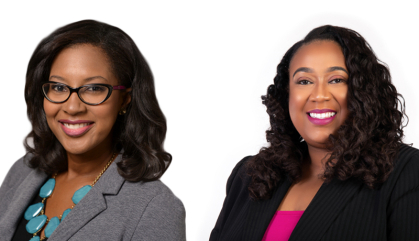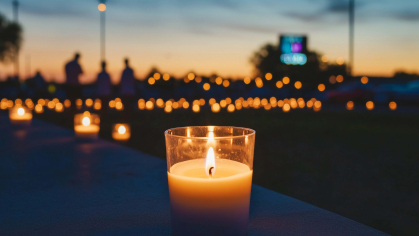Impact of the Pandemic, Social Media and Racial Trauma on Mental Health
While many COVID-19 restrictions and mandates have eased, allowing college students to return to the classroom, continued racial strife, negative effects from frequent social media usage and the aftermath of the pandemic continue to impact student mental health throughout the U.S.
According to a survey conducted by Inside Higher Ed in March, students were more than twice as likely to rate their overall mental health as “poor” (22 percent) than “excellent” (9 percent), with 56 percent responding “fair” or “poor.”
During Rutgers University–New Brunswick’s first Mental Health and Wellness Week, Rutgers Today spoke to Jennifer Jones-Damis, acting director of Counseling, Alcohol and Other Drug Assistance Program & Psychiatric Services (CAPS) at Rutgers-New Brunswick, and Kelly Moore, director of the Center for Psychological Services at the Rutgers Graduate School of Applied and Professional Psychology (GSAPP) to learn more about these mental health issues.

What is the current state of mental health for adolescents and students?
Moore: There is an increase in youth anxiety and depression. These patterns of anxiety, depression, loss and trauma experienced by so many caregivers were also witnessed by many students, who had a daily personal glimpse into their parents' lives. So it makes sense that providers are seeing more children and adolescents with anxiety, panic, traumatic grief, depression and even general adjustment disorders as they try to navigate the world again.
Jones-Damis: Students who started their college careers in their homes are suddenly on campus, going to classes in person and having to navigate social relationships in ways they never had to before as a college student. The demand for mental health services and the severity of the mental health issues has increased.
How does an ever-changing media culture play a role?
Moore: Social media speeds up how information is spread, digested and affects people. They see individuals injured, suffering in war-torn countries, and even dying online. We can't get rid of social media, nor should we want to. While it's a problem, it's also a galvanizing tool to get the word out about social injustices. The murder of George Floyd would not have made as much of an impact had that video not been circulated for the world to see.
Jones-Damis: As clinicians, we stay aware of what is happening in the world of media and trends that youth are following, so we can ask the right questions, anticipate their anxieties, stressors and help their parents be more mindful and aware of what risk factors may be exacerbated as a result of engagement with media.
We dealt with racial trauma stemming from the murder of George Floyd during 2020 as well. What were those mental health effects?
Moore: For many Black children and students, the impact of these events has contributed to more anxiety, frustration and a desire to get more involved and use their social media platforms to speak out about racism and social injustice. But there is no denying that the mental health of Black youth needs to be an area of focus in our field.
New Jersey U.S. Rep. Bonnie Watson Coleman brought attention to the increased rates of suicide and suicide attempts among African Americans. It is imperative that the mental health community examines the impact of race-based traumatic stress, or racial trauma, and integrates our understanding into our training curriculums, policies and procedures. We also need to continue the work of reducing stigma in communities of color and make services more accessible.
Jones-Damis: In 2020 we were dealing with COVID -19 and long-standing racial injustice that was being brought to the forefront. People of color, specifically Black-identified individuals, have always been under attack through bias and systemic racism, but in 2020 the live streaming of Black individuals being harmed or killed so frequently took a toll on a whole generation of people. In fall 2020, Mallory Everett, a clinical psychologist at Rutgers, and I started the Black Affinity group, “Black Power: A Space Where Your Life Matters” at CAPS. This group had the highest attendance among the other 30 groups at CAPS. It was and still is a needed space.
The American Psychiatric Association (APA), citing U.S. Census Bureau data, shows that just 4 percent of psychologists are Black, 86 percent are white, 5 percent are Asian and 1 percent are multiracial. Recently, Black therapists are speaking out about working in a predominantly white field and access to care on TikTok. What is the importance of ensuring a diverse mental health workforce for all?
Moore: As an alum of GSAPP's Clinical Psychology program and now serving as its Center for Psychological Services director, I could not be prouder the school brought in its most diverse cohort for the 2021-2022 academic year, specifically among entering Black students. This is the first time at Rutgers-New Brunswick that both the directors of CAPS and Center for Psychological Services are Black women psychologists. It goes to show the evidence of this school's dedication to diversity at all levels of leadership. I think one would be hard pressed to find this same coincidence at any other institution that is not an HBCU.
We need more Black psychologists and more psychologists representing other communities of color including Latinx, Asian, Indigenous Communities. Sites like "Therapy for Black Girls" has increased the number of Black women seeking treatment from providers who look like them. New Jersey has instituted social-emotional learning in grades K-12, which should reduce the stigma surrounding mental health treatment. The workforce of psychologists needs to be diversified to meet the needs of underserved groups. More psychologists of color can help diversify the monolithic narrative about the experiences of minority groups in America.
Could you provide a summary of some of the resources Rutgers offers to address mental health?
Moore: At the Center for Psychological Services, our doctoral students provide therapy and assessment services for the Rutgers and surrounding communities, serving youth and adults in-person and through telehealth. Clinics include the Child Trauma Clinic, Youth Anxiety and Depression Clinic, Anxiety Disorder Clinic, the Tourette Syndrome Clinic.
Jones-Damis: At CAPS, we offer short-term individual therapy, consultations. We have an on-call 24/7 crisis line with walk-in hours, an alcohol and other drug assistance program (including a recovery house on campus) and Next Step, which includes group-based intensive therapeutic services, individual therapy, case management and psychiatry services. The office of the chancellor-provost also created a list of well-being resources.


